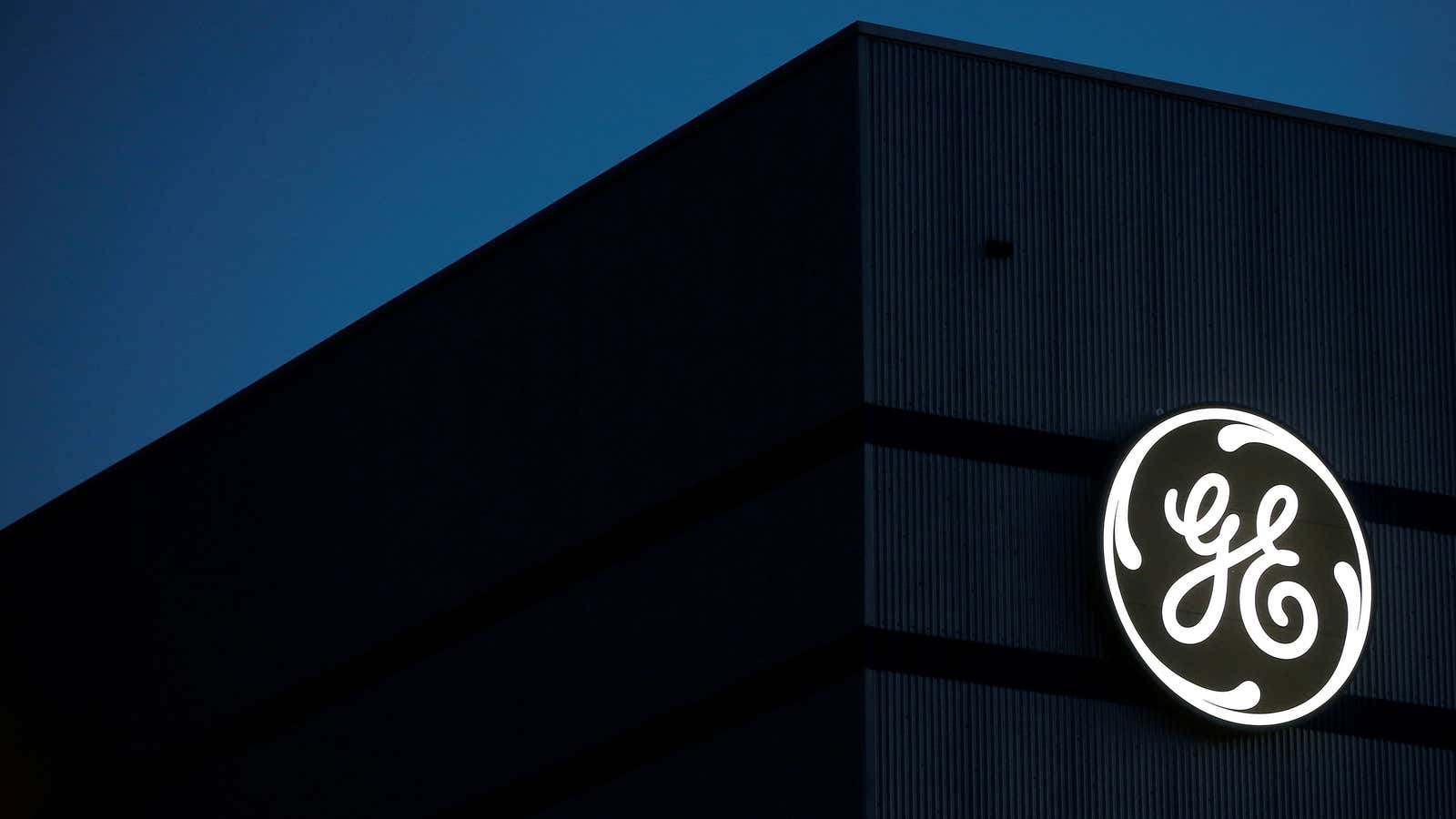General Electric shareholders were feeling lighter—and wealthier—this morning (Feb. 25), after the industrial conglomerate announced plans to sell its biopharma business to Danaher Corp for $21.4 billion, sending its share price soaring 15%. It’s the first significant asset sale since new CEO Larry Culp took on the role in October 2018, after coming to GE from Danaher itself.
For GE’s balance sheet, it’s good news: The company is burdened with more than $100 billion in debt and insurance liabilities, and sorely in need of a cash injection. After tax benefits, Danaher said, the price tag would be closer to $20 billion—most of which is cash. The rising share price likely comes as a relief to investors: shares had fallen by more than a third since their May 2018 high of $15.29.
It’s unclear what this means for the company’s confidential plans to spin off its health unit in an IPO valued at up to $70 billion, as reported by Bloomberg at the end of last year. Its ongoing losses seem to have nixed these plans, shunting it away from its healthcare ambitions and back to its core business and industrial roots. In January, Culp announced the company’s intention to sell almost half the healthcare unit.
GE’s biopharma unit primarily sells instruments and software to support drug research and development. Without it, the company’s healthcare unit will instead be focused around its medical device manufacturing unit—X-ray, CT scan, and MRI machines—and pharmaceuticals diagnostics.
Analysts applauded Culp for the sale of the business, which last year generated nearly $3 billion, or 15% of the company’s healthcare revenue. “The price Danaher is paying GE is two times our expectations,” William Blair & Co analyst Nicholas Heymann told Reuters. “This is a home run. It really turns the page now for GE to address liquidity concerns.”
GE’s previous CEO, John Flannery, was fired abruptly after only a year in the job when investors and the board lost faith in his ability to turn the ship around. Within a month of Culp’s appointment, he announced still rockier conditions ahead for the company, including further dividend cuts, quarterly earnings below even the most modest of expectations, and further investigation from US securities regulators into the company’s accounting practices. The windfall from today’s sale is a step toward stability, making it much more likely that Culp may avoid the same fate as his predecessor.
